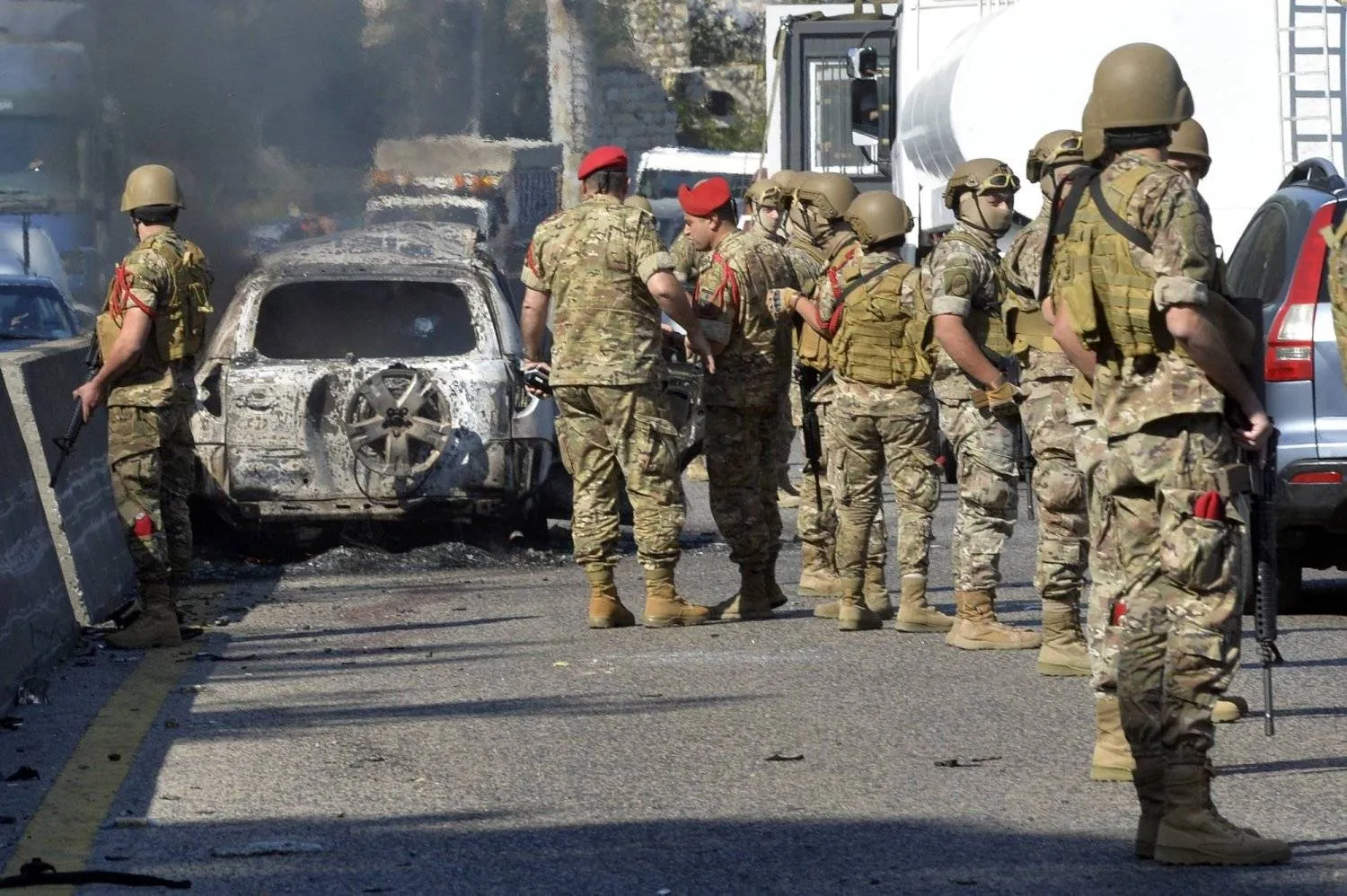Israel has turned the narrow Araya-Kahhale road into a trap for Hezbollah fighters and weapons transported from Lebanon’s Bekaa Valley to southern battlefronts.
Israeli drones have launched seven attacks on this route, targeting Hezbollah personnel and vehicles carrying arms.
Two of these strikes took place before Sep. 23, with the others following the escalation of the conflict.
Israeli Goals: Psychological and Military
According to military analyst Brig. Gen. Saeed al-Qazah, Israel’s strikes aim to create both psychological and military pressure.
The psychological goal, he says, is to create fear and division in communities hosting displaced people, causing tensions over possible Hezbollah presence.
“Hitting moving targets in Christian, Sunni, or Druze areas could spark local fear and mistrust toward the displaced, leading to conflicts,” al-Qazah explained to Asharq Al-Awsat.
Militarily, the Araya-Kahhale road’s narrowness and steep curves slow vehicles to about 30 km/h, making it easier for Israeli drones to strike accurately. The route is a crucial passage for Hezbollah moving from the Bekaa Valley to southern Lebanon, making it a vulnerable target for Israel.
Tensions recently flared in August when a Hezbollah truck loaded with ammunition overturned on a tight turn, leading to clashes between Hezbollah members and locals that resulted in two deaths before the Lebanese army intervened.
A Vital Route
Security expert Brig. Gen. Khaled Hamadeh calls the Araya-Kahhale route essential for Hezbollah’s southbound arms movements.
Hamadeh told Asharq Al-Awsat that this road is “closely monitored by Israeli reconnaissance aircraft, which patrol the area around the clock.”
While the route remains a vital link, he noted that Hezbollah also relies on alternative paths to deliver missiles to southern fronts.
Small vans are often used to disguise arms shipments among daily traffic, especially as missiles are crucial for countering Israeli ground forces.
Israeli Air Dominance
Recent assassinations along Lebanese roads highlight Israel’s control of Lebanese airspace and ability to track Hezbollah operatives.
Two weeks ago, a Hezbollah commander and his wife were killed on the Jounieh-Beirut road, and days ago, another operative was assassinated in the area of Aley.
The strikes are pressuring Hezbollah’s supply routes. Hamadeh suggests these arms are likely sourced from Lebanon’s Bekaa Valley or Syria and transported in stages.
Hezbollah’s persistence in transporting these weapons, despite risks, signals that it is drawing on reserves critical to its ground defenses against Israeli forces.
Israel Turns Araya-Kahhale Road into Trap for Hezbollah Fighters

Lebanese army soldiers and military police seal off the site of an Israeli drone strike targeting a car in the Kahhale area of Mount Lebanon (EPA)

Israel Turns Araya-Kahhale Road into Trap for Hezbollah Fighters

Lebanese army soldiers and military police seal off the site of an Israeli drone strike targeting a car in the Kahhale area of Mount Lebanon (EPA)
لم تشترك بعد
انشئ حساباً خاصاً بك لتحصل على أخبار مخصصة لك ولتتمتع بخاصية حفظ المقالات وتتلقى نشراتنا البريدية المتنوعة







